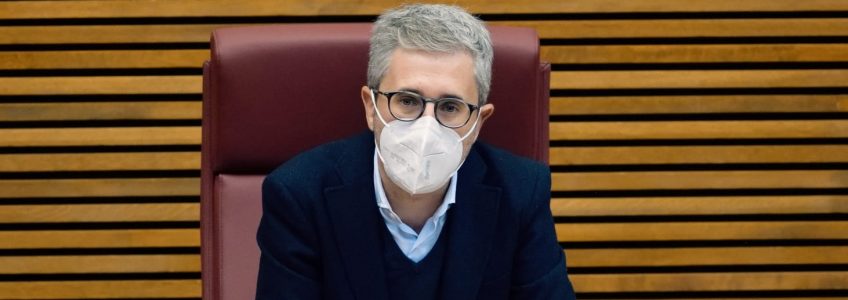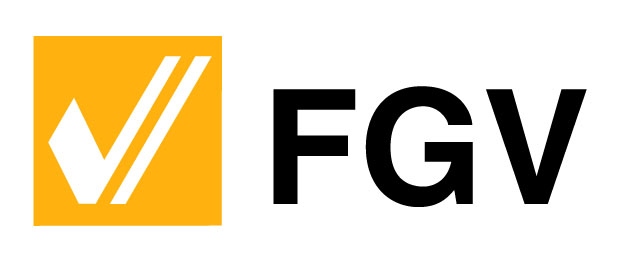- The Minister highlighted that, in the 2022 budget, for every euro allocated to infrastructure, 3.5 euros will be allocated to sustainable mobility
- From January, the fare integration will allow RENFE Cercanías (commuter trains) to be incorporated into the transport system coordinated by the ATMV (Valencia Metropolitan Transport Authority) and to travel with the same card on all means of public transport
- The budget includes 70 million euros allocated entirely to the promotion of sustainable mobility and infrastructures in the province of Alicante
The Minister of Territorial Policy, Public Works and Mobility, Arcadi España, highlighted that the set of programs managed by the Ministry “will amount to 591 million euros in 2022, which represents a 33% increase compared to 2021”, during his department’s budget presentation in Les Corts
During his appearance, Arcadi España said that it is “the highest budget so far in public works and mobility”, and added that “it is crucial in order to build a new growth model, based on digitisation and innovation, and in the fight against climate change”.
According to the Minister, this growth is extremely important because “it includes the injection of funds from the Recovery and Resilience Facility (RRF), which is reflected in a new specific budget program, and provides for the arrival of state funds from the State Budget (PGE) project”.
He also stressed that the 300 million euros contribution from the State, subject to the approval from the PGE, will be settled upon signing an agreement with the Ministry that will specify the actions to be financed and the years in which these amounts can be invested.
Of these 300 million euros, 129 million will finance actions that already have specific allocations within the Generalitat’s budgets for 2022, he said. It also includes an allocation of 70 million, which the Ministry will receive and will use to promote sustainable mobility and infrastructure in the province of Alicante. The remaining budget will be finalised once the agreement with the Ministry is in place.
As for the public business sector’s budgets attached to the Ministry, they amount to 541 million euros, 38% more than in 2021. The budget destined for the Ministry’s direct investment and transfers to other agents to carry out investment expenditure grew by 50% to 351 million euros.
“Historic budgets for an exceptional situation”
For the Minister, “we are facing a historic budget to address an exceptional situation, the largest in this Ministry’s history, without taking into account housing”. Thus, “since 2015, the budget has increased by more than 115%, and more than 150% for investment operations”, he said.
As for the territorial distribution, Arcadi España pointed out that investments and capital transfers “are adjusted to the needs of each province and their population”. Therefore, 44%, or 170.5 million euros, corresponds to the province of Alicante, whose population represents 37.15% of the total, 10.8%, or 41.7 million, to the province of Castellón with 11.59% of the population, and 45.2% of the budget, or 175.2 million, to Valencia with 51.26% of the population.
Sustainable mobility
In his speech, the head of Public Works insisted that “we have been increasing the investment in sustainable mobility year by year, so that, in the 2022 budget, for every euro allocated to infrastructure, we allocate 3.5 euros to sustainable mobility”.
Again, he stressed that “this program includes the largest volume of Ministry resources, amounting to 237 million euros” and includes 1.2 million euros for the project drafting for the installation of two ultra-fast charging points in the Castelló TRAM, and 641,000 euros for the rehabilitation works on the Valencia bus station.
The RRF programme affects traditional lines of action because part of those resources are allocated to specific areas, for example, the purchase of 4 intelligent electric buses, as well as 50.9 million euros for FGV, and 8.5 million for ATMV for digitalisation investments.
In this section, the minister announced that, “next year, we will gradually implement an on-demand transport service that will serve all the depopulated areas of the Comunitat Valenciana”.
Along with the proceedings to finance the capital operations of FGV, ATMV and the Agencia Valenciana de Seguridad Ferroviaria (Valencian Railway Safety Agency), two new projects are included, one for adapting taxis for people with reduced mobility (200,000 euros), and another for the Generalitat’s first contribution to the works on the access canal to Valencia (5 million euros).
Agencia Valenciana de Seguridad Ferroviaria and FGV
The 2022 1.2 million euro budget for the Agencia Valenciana de Seguridad Ferroviaria includes the allocations to continue with its implementation.
As for Ferrocarrils de la Generalitat Valenciana (FGV), the budget estimates total expenditure at 303 million euros, to which must be added 33 million for Working Capital variations.
The Minister referred to the fact that the project drafting will soon be awarded for the extension of the Metrovalencia tramway lines with the extension of the new L10 to the seafront; the new Line 11, which will connect L10 with Grau and Canyamelar, and the new Line 12, which will connect L10 with La Fe Hospital in Valencia.
In Alicante, Arcadi España pointed out that soon “we will have the basic project for the connection between Luceros station and the RENFE-ADIF station, and we will continue with the construction project”. In Valencia, work will begin in 2022 on the pedestrian footbridge (with an investment of some 20 million euros) which will enable a fast and fluid connection between Alacant Street station (Line 10) and Xàtiva station (Lines 3, 5 and 9), thus improving the Metrovalencia network capacity.
Autoridad de Transporte Metropolitano de València (Valencia Metropolitan Transport Authority)
As for the Autoridad de Transporte Metropolitano de València, the Minister highlighted that the budget amounts to 205 million euros, “which represents an increase of 49% over 2021, to which is added 9.5 million of RRF funds”. Furthermore, he added that “in 2021 various measures have been taken to advance fare integration, such as the new Bono 10 MetroBus coordination ticket, or the simple QR ticket to avoid the use of cash and improve the commercial speed of the vehicles”.
In addition, he pointed out that “from January 2022, RENFE Cercanías will be integrated into the transport system coordinated by the Autoridad, so that combining these modes of transport will be possible with the coordination ticket, thus meeting long sought-after social demand”.


